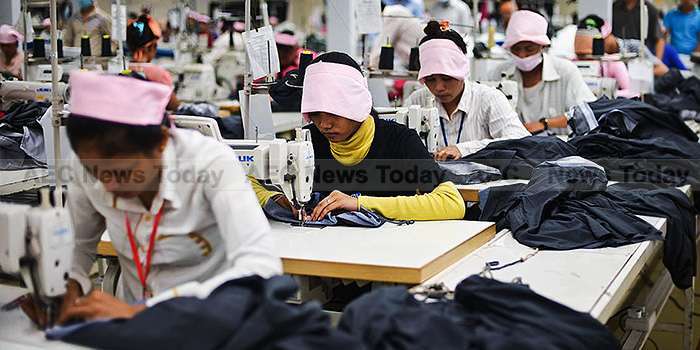In a blow to any hopes Cambodia may have had of mimicking the manufacturing and industrialisation might of Thailand or Vietnam, the head of the country’s electricity authority on Thursday (Aug 8) said that the cost of electricity in Cambodia will “never be as cheap” as in neighbouring countries.
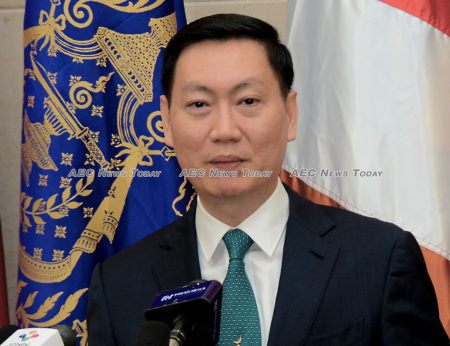
The discouraging news for foreign investors and consumers came during a two-hour long defence by Electricite Du Cambodge’s (EdCs) director-general, Keo Rottanak, of it electricity meters.
Since Cambodia was hit with daily six-hour long black-outs in March consumers in their hundreds have been complaining on social media of higher electricity bills than for the similar period last year.
Denying any fault with the utility’s meters, Mr Rottanak explained that consumers were using more electricity and therefore their bills were higher.
“If you leave your computer plugged in and turned on; if you use a washing machine, then you will use more electricity and have a higher bill”, he explained repeatedly.
Higher consumption despite lengthy outages
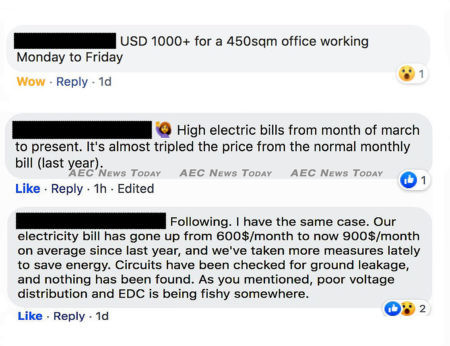
The explanation is not sitting well with many consumers, however, who point to 30 hours of less supply, but metered consumption 50 per cent or more above a similar period a year before with no major change in usage. Some even claim the increases have occurred despite taking active steps to reduce consumption following a higher than expected bill a month before.
In one Facebook discussion a consumer said “Our(sic) has increased 25% with a concerted effort to reduce usage[,] something fishy is definitely going on”.
Another said, “High electric bills from month of march to present. It’s almost tripled the price from the normal monthly bill (last year)”, with yet another stating “USD 1000+ for a 4,50sqm (about 48,400sq.ft) office working Monday to Friday”. One business owner said he had complained three or four times this year about his electricity consumption readings being higher than last year and each time EdC inspected the meter they said it was operating correctly.
Mr Rottanak said concerned consumers should could contact the hotline number and EdC will investigate their complaint. They should not complain on social media. People who were still unhappy after the inspection could buy a replacement meter, though no cost was provided. In Cambodia there is no independent meter testing body, and meters remain the property of EdC.
When AEC News Today contacted the hotline we were told to bring our EdC bill to the office where a form needed to be completed.
To assist low-income earners, particularly garment workers, the power company had installed some 30,000 new power meters Mr Rottanak said, in the process disconnecting and prosecuting people with unapproved connections.
Electricity a tax-free bonus for landlords
Landlord installed sub-meters on the tenant side of a lawful connection are not subject to regulation however, as is how much landlords can charge. Tenants being charged double the EdC rate is not unheard. However, without an EdC bill a complaint cannot be lodged, leaving private renters at the mercy of landlords who pocket the difference as a tax-free bonus.
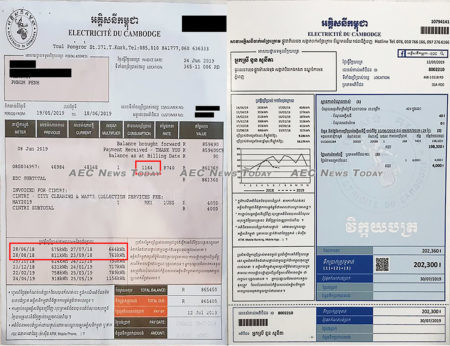
Electricity prices were lowered at the start of this year as part of the ruling Cambodia People’s Party (CPP) “sharing policy” promised before last year’s July 29 national elections.
Those using up to 10kWh per month saw prices drop from KHR 480 to KHR 380 (about $0.12 to $0.10) per kWh, while those using more than 200kWh per month saw the price reduced from KHR 770 to KHR 740 ($0.192 to $0.185) this year, with a KHR 10 ($0.003) per kWh cut in 2020. For consumption of between 11 and 15kWh per month the price drop from KHR 610 to KHR 480 ($0.153 to $0.12).
Medium voltage commercial users pay KHR 540 ($0.135) per kWh, while 22kVA commercial users pay KHR 636 ($0.1590) per kWh. Electricity costs industrial usersKHR 440 ($0.1470) per kWh for 22kVA. For 2020 these rates will drop by between KHR 10 and KHR 20 ($0.003 to $0.005).
By comparison the residential electricity price in Thailand ranges from Bt 3.5 to Bt 4.42 ($0.105 to $0.143), while the residential price for electricity in Vietnam ranges from VNĐ1,678 per kWh to VNĐ2,927 ($0.072 to $0.126).
High electricity costs a disincentive for some
The high cost of Cambodia electricity compared with its neighbours is one of the most frequently cited disincentives by foreign investors. The greater ease of doing business and an available pool of skilled workers, albeit it at higher salaries, in neighbouring countries is an added bonus for some.
For investors from other countries Cambodia’s higher electricity costs are offset by other benefits, including concessions on exports to the EU under the Everything But Arms (EBA) scheme, and to the USA under the Generalised System of Preferences (GSP) scheme.
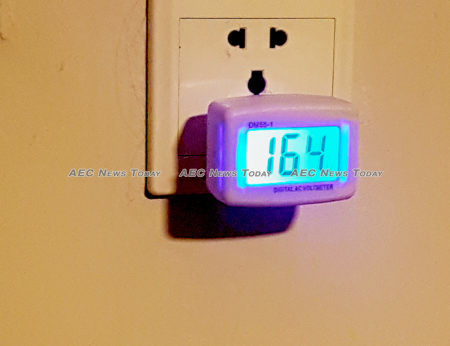
However, Cambodia risks losing access to both over human rights concerns and a severely constricted political and social space, raising the price of goods in those markets.
About 90 per cent of Cambodian exports are covered by the two schemes and in 2018 about 34 per cent of Cambodia’s total exports worth about $4.2 billion went to the EU, with an additional 23 per cent going to the US.
Already threatened by Bangladesh where electricity costs $0.09 per kWh and a new connection take about 150 days compared to 179 days in Cambodia, electricity prices remaining uncompetitive with either Thailand or Vietnam is not good news for Cambodian manufacturers.
Electricity and EBA loss threaten economy
In the first sign that the government is at least bracing itself for hard times ahead, The Phnom Penh Post (the Post) last week published details of what it said was drawn from a 27-page economic report prepared for Prime Minister Hun Sen in June.
The report, the Post said, forecast Cambodia’s economy growth to contract to 6.5 per cent in 2020, a 13.33 per cent fall on 2018’s 7.5 per cent growth. Economic growth for 2019 is already subdued over last year, forecast at 7.1 per cent.
According to the Post, Cambodia’s insecure supply and high cost of electricity, a weak transport and logistics system, slow economic diversification, and a narrow economic foundation were all factors that make Cambodia’s economy particularly vulnerable.
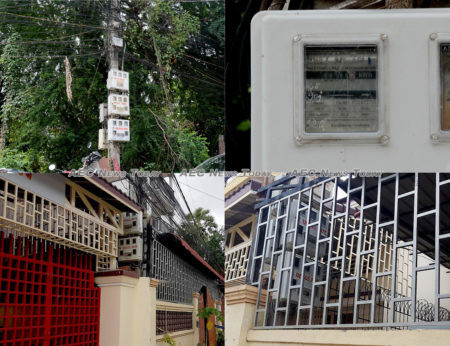
Yesterday (Aug 12) the Garment Manufacturers Association of Cambodia (GMAC) said that loss of the EBA will “result in large job losses across the garment, footwear, and travel goods labour force”.
Some 750,000 Khmer are directly employed in these sectors, supporting about three million family members. With high electricity prices to continue going forward the question of how these manufacturers will remain competitive remains unanswered.
At the media conference Mr Rottanak refused to provide journalists with his telephone number for fact checking purposes claiming it would be “inappropriate”. He didn’t read emails, he said.
The media — and anyone else needing information about EdC — should contact the telephone hotline, which he said was a citable source the media could use, or visit the website (which is only in Khmer language). Questions emailed to EdC via the address on its website were not responded to.
The EU will make its announcement on Cambodia’s continued access to the EBA in December, with the result not coming into effect for six months after that.
Feature photo Samer Muscati/ Human Rights Watch
Related:
- Cambodia electricity authority “in a race” to prevent 2020 cuts (AEC News Today)
- EdC draws angry complaints (The Phnom Penh Post)
- Factories Reiterate Potential Losses as Trade Review Period Ends (VOD)
John Le Fevre
He has spent extensive periods of time working in Africa and throughout Southeast Asia, with stints in the Middle East, the USA, and England.
He has covered major world events including Operation Desert Shield/ Storm, the 1991 pillage in Zaire, the 1994 Rwanda genocide, the 1999 East Timor independence unrest, the 2004 Asian tsunami, and the 2009, 2010, and 2014 Bangkok political protests.
In 1995 he was a Walkley Award finalist, the highest awards in Australian journalism, for his coverage of the 1995 Zaire (now Democratic Republic of Congo) Ebola outbreak.
Prior to AEC News Today he was the deputy editor and Thailand and Greater Mekong Sub-region editor for The Establishment Post, predecessor of Asean Today.
In the mid-80s and early 90s he owned JLF Promotions, the largest above and below the line marketing and PR firm servicing the high-technology industry in Australia. It was sold in 1995.
Latest posts by John Le Fevre (see all)
- COVID-19 in Asean: update for July 26 — 16 mln case barrier breached, Vietnam records community transmission – July 26, 2020
- COVID-19 in Asean: update for July 25 — new high for daily infections, 16 mln infection barrier to break today – July 25, 2020
- COVID-19 in Asean: update for July 24 — Asean tops 230,000 cases, nudges 90,000 active – July 24, 2020
- Thailand morning news for July 24 – July 24, 2020

